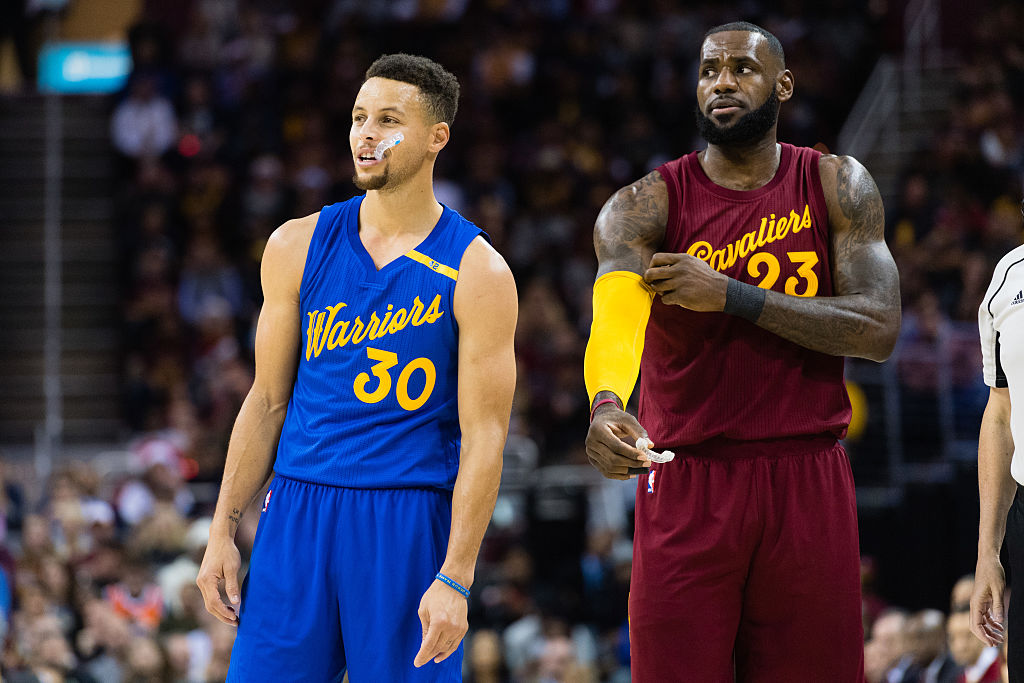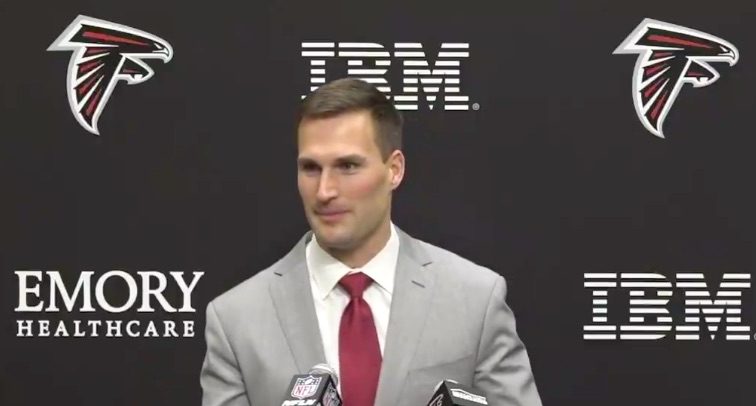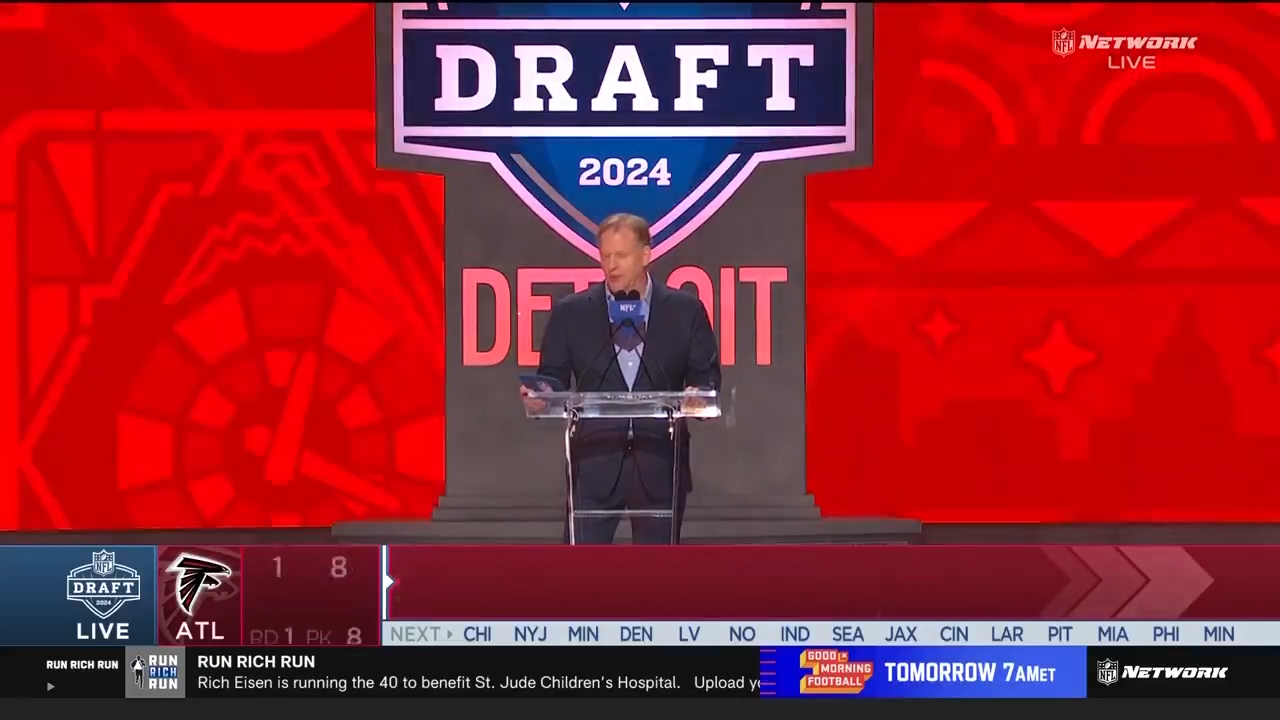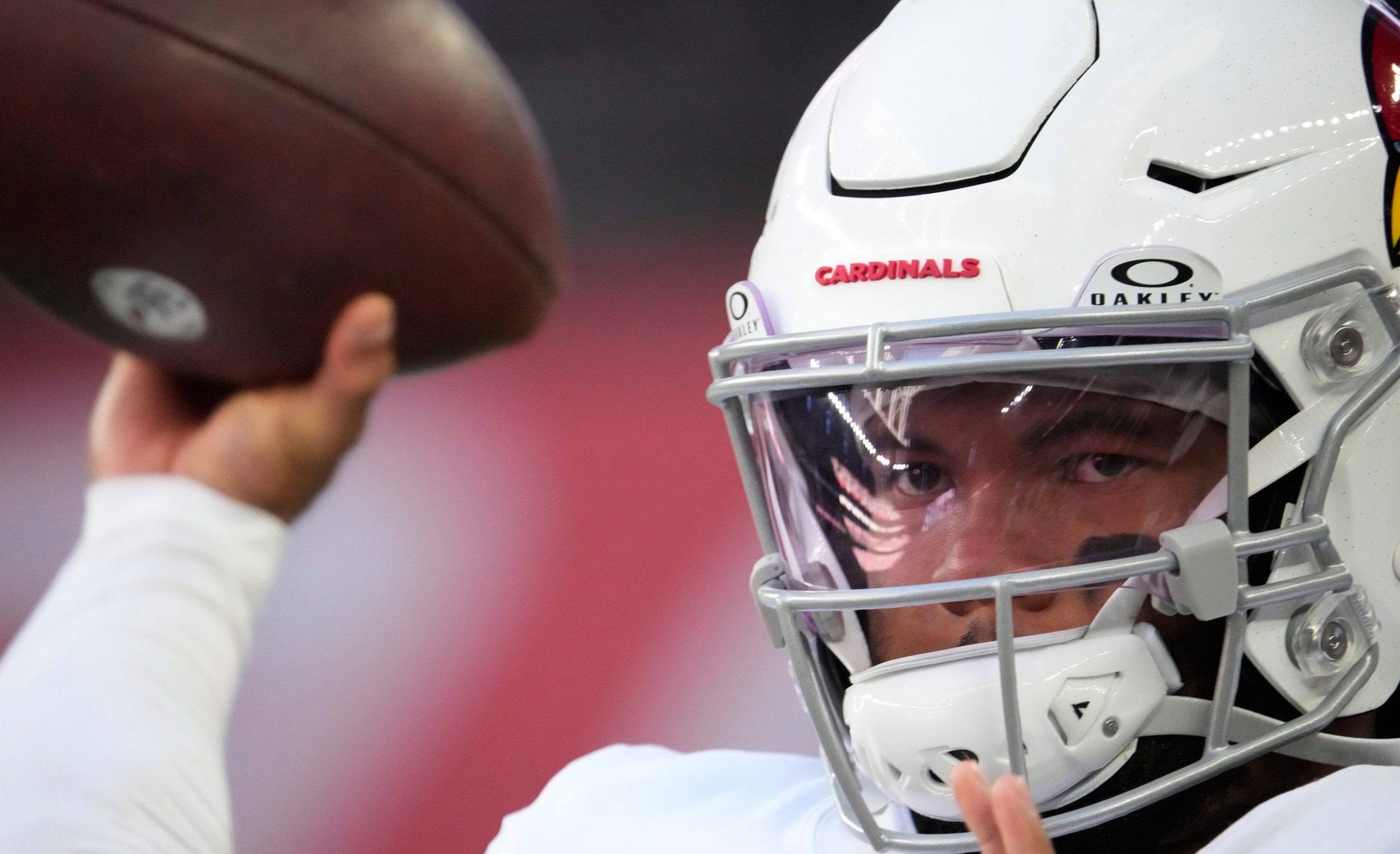The Golden State Warriors and Cleveland Cavaliers are a combined 15-0 in this year’s NBA Playoffs. If the Warriors are victorious over the Utah Jazz in Game 4, both teams will have swept their first-round series.
It sure seems like we’re destined for a third straight Finals matchup between the last two NBA champions. With over a month remaining in the NBA postseason, is that a good thing or a bad thing for the league?
On one hand, national rivalries between the best teams are when basketball is at its best. We all romance about the Celtics-Lakers rivalry in the 80s with Bird, Magic, McHale, Worthy, Parrish, Abdul-Jabbar, and a who’s who of the game’s greats on the floor at the same time. The most memorable of Michael Jordan’s Finals battles were against the Utah Jazz of Stockton and Malone, two of the greatest ever at their positions.
But while we long to see the best versus the best, it’s sometimes a long slog of inevitability to get there. And when two teams seem so destined for a Finals collision course, it can make the rest of the postseason seem obsolete.
Obsolete is a good word to describe the four series featuring the Warriors and Cavs thus far. The Cavaliers had a lot more difficult of a time with the Indiana Pacers in Round 1 than they did with the Toronto Raptors in Round 2. It seems like eons ago that C.J. Miles missed a potential game-winner in Game 1 on the road in Cleveland, doesn’t it? After beating the Pacers by no more than six points in any of their four games, the Cavaliers beat the Raptors by an average margin of victory of 15.4 PPG. It’s the second straight year the Cavs have gone 8-0 in the first two rounds.
After all the concern and consternation about the Cavaliers’ regular season form and finishing second in the conference behind the Boston Celtics, LeBron James is playing the best basketball of his career and it turns out the Cavs are just fine. In the 2017 Playoffs, James is averaging 34/9/7 while shooting 55 percent from the field and what would be a career best 47 percent from downtown.
Out west, the Warriors have had an even easier time. In spite of missing Kevin Durant for a little while, and missing coach Steve Kerr for an unknown period of time, they haven’t missed a beat. They easily dispatched the Trail Blazers in Round 1 by an average of 18.0 PPG, which included a stunning 45-point first quarter on the road in Game 4. Thus far in Round 2, they have likewise dominated the Jazz with three straight double digit victories and look well on their way to another sweep.
Both Golden State and Cleveland have seen their offenses firing on all cylinders and are #1 and #2 in PPG and FG percentage thus far in the postseason. In fact, Cleveland is just a shade ahead of Golden State averaging 114.5 PPG while the Warriors are at 114.4 PPG.
The big question for the NBA and playoff fans is whether or not the games are worth watching until the Finals if the outcomes seem so predetermined? What about the other series that seem to play second fiddle to whatever Golden State and Cleveland are doing, and seem to be more about consolation prizes than anything else?
Sure, the other conference semifinals series (Wizards-Celtics and Rockets-Spurs) are both tied at two games apiece and have featured some exciting moments. But even many of those games have lacked drama. The Rockets won Game 4 over the Spurs by 21 points and the Wizards beat the Celtics by 19 points. Even though Rockets-Spurs is tied up in games, none of them have been truly memorable with an average margin of victory of 21.25 PPG.
The lack of competitiveness is both a large and a small scale problem. Think about it — can you recall off the top of your head any truly great playoff games this year aside from Wizards-Celtics Game 2 when Isaiah Thomas went off for 53 in an overtime win? Maybe Spurs-Grizzlies Game 4 or something from the OKC-Houston or Utah-LAC series? That’s really about it, though.
The higher seed has won nine of 10 series so far (counting Golden State’s inevitable win over Utah, hello Freezing Cold Takes) with the two conference semis up in the air. Compare that to the NHL, where the higher seed is only 5-for-9 thus far in the postseason and the #1 seed out west, the Chicago Blackhawks, were swept by Nashville in the first round.
Over the last three years, there have been six total upsets in the NBA Playoffs where the lower seed overcame the higher seed. That’s just two upsets per postseason. The lack of postseason parity in the NBA is stunning, especially when you contrast it with the “anything can happen” nature of the Stanley Cup Playoffs.
It all depends on what you would rather see as a fan – constant unpredictability or the best teams squaring off in classic matchups. It would be nice if the NBA Playoffs could deliver more lengthy series where the top teams are challenged in classic games… but my guess is if we do get another Warriors-Cavs epic then nobody will be complaining.








“Competitiveness” issue in the NBA17 playoffs? Does a bear…you know…in the woods?
Since around ’88 the NBA road to O’Brien has been, if not toll-free, pretty clear driving. But since most NBA fans today are focused primarily on celebrity (Steve & LeBron), a lack of serious PS play doesn’t present a “problem.”